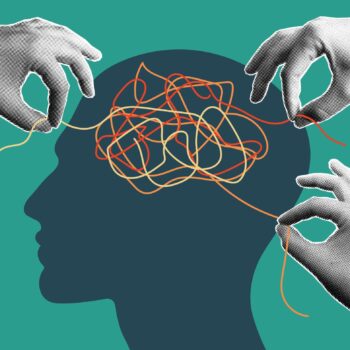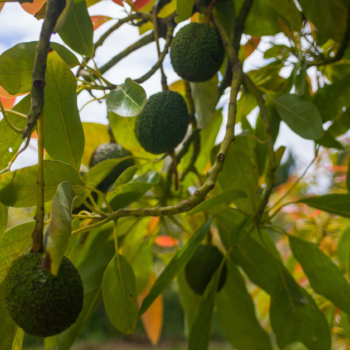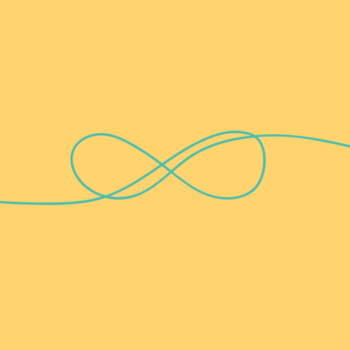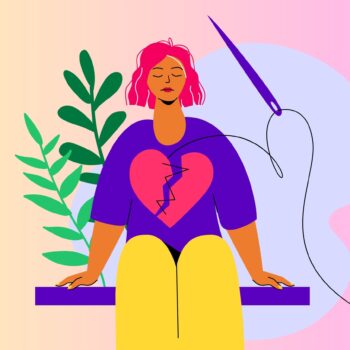Decades On, Grief Still Surprises Us
/ General : Litsa Williams
The What's Your Grief Podcast: grief support for those who like to listen.

In this grief podcast, Eleanor Haley, MS and Litsa Williams, MA, LCSW-C, the mental health professionals behind the website and book 'What's Your Grief', leave no stone unturned in demystifying the complicated and messy world of living life after loss. One digestible topic at a time, Haley and Williams distill topics ranging from grief theory to coping. Grief is sad and confusing, but your grief support doesn't have to be. You can listen here by using the player above or listen and subscribe wherever you get your podcasts.
Below we have provided a transcript of the episode.
Episode Transcript
Hey! Welcome back to another episode of the What's Your Grief Podcast. This is Eleanor and of course I'm joined by Litsa. Litsa, how are you today?
I'm doing okay. I am cat sitting for a friend's very very vocal cat. This cat makes more sounds than any cats I've ever been around before. So, I share that both to say that's all I'm doing, I'm cat-sitting, and also if you hear any strange noises in the background that's probably what it is.
I've noticed that you cat said a lot for somebody who's a dog person.
I've noticed that about myself too lately. I think that part of this is that my mom has had cats for a very long time. But her old cat, I was, I mean, terribly allergic to.
Oh right.
I could not even go in the house. So I never cat sat. And then they got this new cat, that cat died, and then they got a new cat and their new cat I am not, I mean I'm allergic a little bit to all cats but like the question is can you control it with medication or not, and the new cat I can control with medication. So I started cat sitting for my mom periodically. And then once a couple of friends knew I was cat sitting for my mom, it was like I was available on the market as a cat sitter. And so now, suddenly I have been cat sitting a bit more regularly. But I dog sat last weekend and that was much better because I am in fact a dog person.
Right. Not allergic.
Not allergic. And it was so nice to have like a big oathy dog in my house. I had him at my house, and yeah, I had a great, yeah, lots of nice long walks. It was great.
We were just talking in the community about loneliness and how one of the things you can do if you are somebody who knows that you can take care of an animal is to adopt an animal. And that's always a nice solution for people who are animal people. Definitely not recommending it if you're not sure if you can take that on, or if it's too much of a responsibility for you right now. But it can be a really nice thing. And it gets people out, like you said.
Yeah.
Sometimes they take the dog for a walk or things like that, so.
Oh yeah after my dad died, my mom and my sister and I got a dog. And all of us look back often and talk about how amazing that what, like, what a good thing that was for all of us in our grief. Gloria, she was great and you know again I think you don't want to do it impulsively, but if it's the right, if it's the right thing, it can be a really really really good thing...
Yeah.
...after a loss.
Agreed. Anyways. So off topic from what we're gonna discuss today. Well, actually on the subject of what we're going to discuss today, we had a long conversation and we have a lot of different ideas that we tend to throw around. And once again we're open to listener's suggestions, if you ever have something you want us to talk about or a specific question we won't tell people who asked it but we encourage you to send it because we like to have specific questions to answer. But we didn't today. So, we had a couple of things we were throwing around. And one of the things we were talking about is just going back and covering some of the content that we covered when we started this podcast back in 2015. If you think that our podcast is low budget now, in 2015 before everybody had a podcast...
I was gonna say I think it technically was even 2014.
Was it? Okay.
Yeah.
Yeah. And it was a lot actually, believe it or not, harder to make a podcast. And it was very very amateur hour. And (and) if we're saying that now, you can only imagine. But anyways we were talking about how it might be nice to go back and revisit some of those topics. And I think this like the second or the third topic we did was misconceptions about grief.
Yeah.
And we, I don't know like, there's some things that we used to talk about in a certain way back (back) in the day that have sort of evolved in a way. And I (I) think one of the discussions we were having is how we don't really talk a lot about misconceptions about grief just because there's so many misconceptions about grief, right. And they really all could depend on (on) the family you grew up in or the culture you grew up in, or the society you grew up in, or just attitudes that you sort of absorbed watching television or reading books, things like that. There's so many. And one of the best ways to kind of demystify and set the record straight is to actually instead talk about some of the things that are true about grief.
Yes. And I think that, you know, oftentimes the things that are true, they point to, sometimes, a whole cluster of misconceptions that might be under that. Like, when you go Oh wait if this is true then a whole bunch of related misconceptions are not true? But it does. It sometimes seems like an an easier way to think about it or to talk about it.
Right. And like no shame if you feel like you went into grief with a hundred misconceptions because that is what everybody does. Because it's really, it's one of those experiences that you can't fully know until you're (you're) in it. And we, a while back, asked people like What do you wish you had known about grief?, What are some of the things you wish you had known about grief going in and we received so many responses and we've created lists upon list about this. I think we have two or three different lists that are called 64 Things I Wish I had Known About Grief, I Wish Somebody Told Me About Grief, because we just received so many different answers. And I think that that just goes to show that there are so many surprises in store when somebody goes into grieve. Not (not) great surprises, but surprises nonetheless. And we were just talking about it where we are in our grief now which is, you know, we've all, we've experienced many different types of losses but I think that one that we kind of always think about is (is) the death of both of us, experience the death of a parent in early adulthood. Which we're both now over a decade out from. But we were just talking about like what are, what is something, what is like one thing that's surprising you now all this time later about your loss and about grief.
Yeah. So, and it's interesting, I think there's a lot. I think there's a lot of things still that, I (I) don't know that they're all like fresh surprises, but maybe I continue to be reminded of them as surprises, you know. I think that the first one is probably just like the (the) simplest one. Like for me it's been more than two decades since my dad died, you know. I was 18 when my dad died. And I think that at that time, it's interesting one of the things that I, the one of the things that I think we say is a misconception or what we often talk about is this idea that you'll grieve in some way forever. That people don't, you know, it's a misconception that it's ends, or that it's time limited, or that it has an expiration date. But when I look back on myself at the time, I'm not sure that that was a misconception for me. Like, it was such a big devastating thing in my life, that I think I very much was like this is going to be with me forever. Like, this is, I didn't have some idea that it was gonna go away, or that it was, you know, I don't (I don't) remember ever feeling that. I remember feeling like this has permanently changed everything. And so I think now, the thing that's interesting as I'm 20 years out, is how much that remains true but feels very different in how it's true. Like, I think now when I look at my grief, I do think that that loss changed everything about the trajectory of my life. Like, I think I would have been incredibly different for a lot of significant reasons. I was 18 so I was still in the middle of, like, making a lot of big decisions about my life. And I do still think now, like having the world view that was shaped by being a person who lost a parent at 18, I very much live my life in this way of like who knows how long you have prime, I'm probably gonna die pretty soon and that like shapes a lot of what I do. But I think that the specifics, like the specifics of grief or the specifics of feeling like I'm grieving my dad as a person, has changed a lot. And I think that, in a way that's, you know, hard would have surprised me. Like, I think that now it's been so long that there's so many specific things about my dad that I still, you know, miss and grieve, but that in general, it feels more conceptual which I don't know, I don't think I would have liked to have heard that 20 years ago.
Yeah. I (I) hear whatyou're saying. And by conceptual, do you mean is it a similar meaning to like abstract in a way?
Yeah. Like, abstract, like now it's just so much apart.
Yeah.
Like, it's just so much a part of my world. Like my world foundationally is a world that exists without my dad. It has been a world that exists without my dad for so long that that now feels familiar. Like, it feels the absence of my dad feels familiar whereas I think I (I) 20 years ago would have said that's impossible. It will not ever be possible for, or that to feel familiar. It still feels awful. Like, it's familiar, I think, doesn't mean it, you know, it feels good. I think it just means, I don't, you know that early grief sort of, I might say early I mean like first decade grief of sort of everything feeling like it was compared to the world where my dad was still here. I think I feel that less now because I'm just, yes, I'm just used to a world where he doesn't exist.
I think my answer would be in the same category as your answer. So, and when we talk about, like we in our book, the first chapter we wrote or the first section we wrote was like truth about grief. And the way we talked about it there, because people were finding this book theoretically in the very beginning of their grief is just that it's not a predictable process with a set timeline and an end point right, which is to say, it adds, it flows and it goes on. And I think (I) I'm in, which is kind of where I think, I would put what you just said, and it's also where I would put what is feeling most prominent for me lately, is that my grief is still with me. And I am often surprised at the space it occupies because it doesn't just like settle in and stay the same. And I think when people hear us say like grief will stay with you, they think a lot of different things. Initially, they might think it's always going to feel like this bad first six months, a year, two years and that's not what we mean. But I also don't necessarily think we mean that it's gonna like find a space and stay there. Like it (it) kind of evolves in this interesting way, like I kind of, the, in my head I think about it it's like if you planted (a sea) a seed on the on the day your loved one died, like a tree, if you planted a tree on the day your loved one died and it started to grow, like it would grow up, it would grow out, it would grow all these different branches and every season it would look different. And that's kind of how I'm feeling. Like, because now, I feel like, I felt like I was very much in that abstract place. And like a couple months ago that was something I was really actually grieving a lot. Because I felt like it was a symbolic of me losing the tangibles of (of) my mom, which I've lost, you know, those sensory things a long time ago.
Yeah.
But really just not even being able to, like remember what her voice sounded like, things like that. I was really grieving that. And now I just, I feel like it's evolved into something different. But similar where I'm just, I (I) really find that I'm in a way I haven't been for a long time. Just like yearning to have her back again.
Yeah.
It's odd, I feel like I've kind of gone back to where I was in the beginning in a different way. And it's, like, just hard for me to describe it. I just feel like I'm more and more revisiting this idea that she's never coming back and that's not fair. And like I just wish to have her back and I hadn't felt like that probably for years and years. I don't know what's bringing me to this new place of like non-acceptance of it, you know, or like kind of feeling that it's unfair. Maybe it is where I (I) am in my life as a mother, what, I have no idea but like...
Yeah. Oh I think that's very true. And I think I've been thinking about something similar recently because their, my mom had been having some health stuff. And for whatever reason, that one of the things that you would think though like maybe that would bring up stuff more specifically related to my mom dying or, you know, like those sorts of things. But what it really brought up was me thinking about my dad like how would this be different if my dad were here. And I hadn't done that in a while where I'd had like a really specific thing where I was like Oh wait a minute, this would feel really different. Like, this whole thing would be really different. And so, I had that same feeling where I was like Wow, I haven't had this kind of grief feeling in a while. And when it came up, it felt like a feeling from another time. But again, I feel like, it is because it always ebbs and flows.
Yeah. Yeah. And like when I (when I when I) talk about, like, the metaphor, metaphor (of the) of a tree, you know. Sorry, that sounds cheesy. But (but) I like metaphors, so I will use it. So, I will lean into it. it's not that all the branches are like bad or broken, you know. It's just that, like, some are and some are great, some bear fruits, some have flowers, you know. Some are (some are) wonderful representative of like the continued bond and the space that the person, that the people, you know, you love continue to occupy in your life. But some are (are) a little darker and twisty and bent and broken. And I just, I don't know sometimes, I'm surprised when one really feels kind of really bad because you do, after a certain amount of time, just sort of feel like I've made (I've made I've made) peace. And I'm making more peace every day. More peace more peace more peace. And when you hit a place where you're like Oh whoa, like, I actually haven't made peace with all of this. And it's not that on day, you know, one I didn't start to make peace with all the things I needed to make peace with. Like, I think that's also a myth out there that like well if you do your grief right you'll, like, make closure with all these things.
Sure.
It's like no, that's not it. Because as you get older, like, all these new losses, all these secondary losses, like, they (they) crop up there. They become, they come out of nowhere. They didn't exist on day one. Like, they weren't in your consciousness. They weren't there. They, they grew over time. And so I think people who feel like Oh well I can grieve my way through this and come to a place of acceptance and peace. Well maybe (maybe) that's how you feel like. And if that's how you feel then (then) okay. But I think, for a lot of people, it's like Oh wait a minute, this is like something that continues to crop up in new ways that I could never have made peace with because it didn't exist.
Oh yeah. Because it didn't exist. And because it wouldn't. And I think that, that you know, for me and maybe this idea of it feeling more abstract or interesting or, I don't know, I've started feels like the wrong word too, but I think it, to me, some of the, like, lifepath trajectories, like, I feel very aware of how, like, certain paths in my life very distinctly happened because of my dad's death. And so as a result like I, truly early in my grief, I think never could have predicted, you know. There was just no way, right, You can never predict the future of your life. But there are so many things that you can't, you look back and you think Wow! I never could have imagined this. And that this would bring up so many new feelings about my loss or so many new feelings about the past even though it's, you know, 10, 15, 20, 25 years later.
Yeah. And so that kind of goes along with another thing that I'm noticing (as I as I get older) as I get older. Because you bring these losses with you, many of them. And they become a part of your story. And (and) many of them you do find peace with. Many of them you do find ways to cope with and live along side them. There is sort of this cumulative effect. And I do feel, like now more than ever, I feel like Wow! we live along side so much loss as we get older. And like I hear it when we meet with people in the community and they share their story. Like, a lot of people aren't just coming to say I'm grieving this one person, they are naming many losses that they have experienced and so it is something that I (I) didn't realize necessarily. Like, I realized it but I'm now I guess I'm living it. That a lot of losses like they stick with you and they begin to add up a little bit.
Yeah. And (I) I've been thinking about this too. Because I've been thinking about sort of the implications of inner generational loss and how, you know, our own grief I think in ways starts with our parents and our care givers and their grief, you know, and what we were raised with. And (I) I was thinking recently about my mom and, or really about (about) both my parents, but my mom specifically, having had so many losses that she went through. Well, before my dad died, I mean, she, you know, her dad died when she was in elementary school, and then she and my dad had a baby that was stillborn when I was four, but her best friend died when she was 36 (of) or, one of her very closest friends died of breast cancer and sort of a really upsetting. I mean the whole thing was like a really upsetting death specifically. And (and) then there were other like those were some of the big ones. But I was just thinking about how, like, even from my childhood, like those losses were so much a part of my mom's life and therefore, and (and) I knew about those, and therefore they were kind of part of my life. And I do think as I get older now, you do just start to realize Well yeah because that's how, that's what life becomes right it becomes loss on top of loss on top of and loss.
I don't think people, I mean, I guess maybe I (I) didn't realize, I mean I did and I didn't. But, like, that this sounds so dark and depressing it's not but that living life like eventually you reach a point where you just have to live alongside loss. Do you know what I mean? Like, I feel like there's this misconception that we have a loss and we shed it. And we move forward from it. And that's not really fully true.
Yeah.
Eventually, we reach a point where (where) we just have to say I've (I've), this loss is all part of my story and I have to find a way to live a life of value and meaning and purpose at the same time so that makes sense? I feel like I'm not making a lot of sense today.
No, no. I think it does make sense. And I think that, you know, the I, I'm thinking about that New York Times essay a couple weeks ago that was called "More and More I Talked to the Dead" and, you know, the author of that, very much I think talks about this idea, like there's an image at one point that she sort of uses of the idea of kind of sitting around like a table.
Yeah.
Yeah. People lost. And thinking about that, and I think, it really is part of what we have to figure out a way to become comfortable. I mean, maybe comfortable is the wrong word. But I think comfortable with of like that reality, of being able to make that part of it, of (of) us. And I look at my friends who have gone through many, some of the many multiple losses. And how much because I think we have maybe more of a comfort with grief and talking about grief, and that being like I think of how much conversation happens around yeah people who are dead. And like I think that's able to happen because there's never that feeling of like Oh I can't bring this up. That's going to make somebody else uncomfortable or I can't think that like it comes up easily in conversation all the time. Both the grief but also just the people who are gone. And it makes me grate, I'm grateful that I have that with people. But it also makes me aware of how hard and sad it would be to not have that. And I know that many people don't have that. Like, I'm uniquely lucky in so many ways to have that. But it's not that like comfort and that idea of like we're gonna (we're all gonna) be living alongside of it all the time, so we just need to learn how to all make space for it together.
Yeah.
I (I) don't think is the default for us culturally.
No. No, not (not) in our culture, at least not in our society. But you're right, I mean, if you're not willing to acknowledge and talk about, and acknowledge its presence, it's like you're tiptoeing around, a lot of unmentionable things. So, yeah. But there are a lot of truths about grief I think, that (that) we can talk about and that we will talk about in time.
Another day.
But I think, the fact that you and I both had very similar answers about what's surprising us, I think maybe goes to show that this one about the the timeline, the myth of the timeline. And the myth of the uniformity or (or) the progression of it is one that is really just big for people and needs to be kind of revised. We talk all the time about what the evolving relationship with grief means. And I just don't think people realize it. And if you realize it going in then like good. I'm sure people do, I'm sure people have learned different lessons about grief than I did, you know, growing up. Because I didn't learn a lot of lessons about grief until I was in it. But I do think a lot of people do go into grief thinking. It's going to look a certain way over time. And the way it unfolds is just totally different.
Yes. And it would be interesting to sort of talk to people early, like really early and be like what do you think this is going to look like? Because one of the things that's so hard is I go back and I'm like this is what I think I thought and this is what I, you know, but it's so hard to say. And even the more recent losses like that I've had during COVID, like it's hard now because I'm somebody who spent so much time thinking about grief. That it's not that useful to think about what I think, but it would be really interesting. Like, I would love to see a big qualitative research study, not where they prompted people, but were they just asked people unprompted in like the first month after someone died like what do you think this is going to look like over from here on out? I would love to know what people's answers are...
...and what people a decade out then say.
Yeah.
I think that we know that we don't know what it's going to look like, right. So I would not at all be surprised if (if) data showed it did not follow the expected pattern that I thought it would. And you know you're right, you and I, working in in this space we're primed to see it, like I think I am primed to see it in my life more than someone else might. I do think it's present of mine for a lot of people regardless, like, I'm not saying it people aren't noticing, I'm just saying like I think maybe I'm more apt to label a lot of things about my grief. That someone else might label as something different.
Yeah. That's so true.
I don't know. it's all I, I don't have answers. I just have questions and thoughts.
Yeah. I'm with you. So we will talk more about other truths in future episodes.
Yeah. We'll definitely do that. Once again, if you have a suggestion or a question, you can email us at whatsyourgrief@gmail.com or you can reach out to us on mostly Instagram. You could tweet at us at What's Your Grief. We're also on Facebook, Pinterest. We're a lot of places but we're (we're) in conversation mostly on Instagram. And we'll link to some other things in the show notes, our book. That does talk more specifically about truths about grief and miss and misconceptions. And also our community. We have a community for people who are grieving, and we have a community for grief professionals. When we say community, we mean it's like a kind of like a private membership only type of community where we do a lot of different types of things. So we'll provide information about that and I guess that, that's everything right?
I think that's it.
All right
We wrote a book!
After writing online articles for What’s Your Grief
for over a decade, we finally wrote a tangible,
real-life book!
What’s Your Grief? Lists to Help you Through Any Loss is for people experiencing any type of loss. This book discusses some of the most common grief experiences and breaks down psychological concepts to help you understand your thoughts and emotions. It also shares useful coping tools, and helps the reader reflect on their unique relationship with grief and loss.
You can find What’s Your Grief? Lists to Help you Through Any Loss wherever you buy books:




